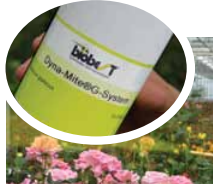Biobest: local production in America and China
Shortly after its foundation in 1987, Biobest became the first company in the world to produce and sell bumblebees for biological pollination. Since then, Biobest has also become a leader in biological pest control in agriculture.
As people prefer native bumblebee species, Biobest recently established a production unit in Argentina of Bombus atratus, a native South American species. Also in North America, Biobest started to multiply Bombus huntii for outdoor use in British Columbia. This is mainly used for pollinating blueberries, and opens up new opportunities for other crops such as apples and pears.
Biobest has also just opened a production centre for Bombus terrestris in China, too. “We have a global approach in providing pollination and biocontrol solutions,” affirms Herman van Mellaert, head of Business Development at Biobest. Today, the group supplies all of Europe, most of the Americas, the Middle East, East Asia, and Caucasia (Kazakhstan). It is directly established with Biobest divisions in Holland, France, Spain, Morocco, Turkey, Mexico, the US and Canada, for example. In Western Canada, it recently acquired its distributor. “We have significantly extended our direct network and today have the capacity to offer tailor-made solutions for growers in the five continents,” states Mellaert.
Indeed, Biobest delivers its products in 63 countries and has 14 subsidiaries in 13 countries. China, Columbia and Israel are the latest countries where Biobest is directly represented. Biobest also continues to innovate in the concept of biocontrol, successfully launching Nutrimite in 2013. This is the first nutrition solution for predatory mites like swirskii, degenerans and Euseius. “It is advisable to introduce a predatory mite when there is no pest yet, so the predator can develop and reproduce in order to build a strong population ready to attack the pest when it appears,” explains Mellaert. This approach was really embraced very effectively by cucumber growers and is gaining ground in different crops.
Biobest also sees development in the ornamental sector, which is generally even stricter about the presence of pests, in particular with roses, gerbera and potted plants. Biobest today supplies a complete range of biocontrol solutions for vegetables and flower growers. Dyna-Mite® (Euseius) is the newest mite, introduced in 2014 against thrips and spidermite. It is especially successful in crops where the swirskii is not so “content”, like roses.
“Flying Doctors” is another “groundbreaking” concept launched by Biobest a year ago, using the bumblebee to transmit microorganisms as biopesticides. Bumblebees are also used efficiently to apply pollen powder to improve the pollination of kiwis. The result is higher productivity and larger fruit (with more seed). Gliocladium is the first approved biopesticide application with Flying Doctors, effective against Botrytis in strawberries. “It has already been approved in Belgium for a while and we expect it to extend to Holland and France.”
Worldwide, the group employs 434 people and has consolidated a turnover of more than 40 million euros, of which 95% are from exports. The company was one of the nominees for the ‘Leeuw van de Export’ award in 2014, a contest organized annually by Flanders Investment & Trade to recognise companies that do exceptionally well in exports.
PE
This article originally appeared on page 14 of edition 136 of Eurofresh Distribution magazine.


